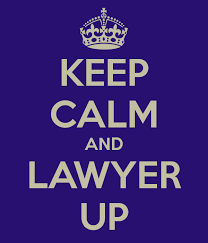Conflicts Of Interest After the Yates Memorandum
 As we continue to operate under the Yates Memorandum, a number of interesting and difficult issues are sure to develop surrounding internal investigations and individual culpability. Corporate internal investigations have to focus on all potentially culpable individuals.
As we continue to operate under the Yates Memorandum, a number of interesting and difficult issues are sure to develop surrounding internal investigations and individual culpability. Corporate internal investigations have to focus on all potentially culpable individuals.
Many commentators have incorrectly suggested that the Yates Memorandum will not have an impact on corporate internal investigations and the Justice Department’s prosecution of individuals. These commentators are likely to eat their words as changes occur.
Corporation investigators will respond to the Justice Department’s policy by developing more potential cases against individuals. The Justice Department is likely to turn around and bring a greater number of cases against officers, managers and employees.
Along the way, however, corporate investigators are going to face increased challenged from defense counsel for these individuals. The more the corporate investigators can be characterized as conducting an investigation on behalf of, or for the benefit of, the Justice Department, the increased risk that defense counsel may be successful in challenging corporate investigations conducted by outside counsel.
A perfect example of increased risks for investigators is a company’s failure to resolve a potential or actual conflict of interest in failing to ensure that a subject of an investigation has separate counsel to advise the subject during an internal investigation.
Prior to the Yates Memorandum, corporate investigators may collect documents and interview an officer or employee who is suspected of playing a significant role in a scandal. The corporate investigator may interview the subject without ensuring that the subject has separate counsel. Assuming that the corporate investigator is careful and provides the subject with the Upjohn warnings, the corporate investigator may seek to conduct the interview without providing the subject with separate counsel. Based on the documents and the interview, the corporate investigator may determine that the officer or employee may need separate counsel.
Defense counsel for the subject may challenge the use of the initial interview by claiming that the corporate investigator should have provided separate counsel to the subject of the interview. Defense counsel is likely to raise that issue with the court, claiming that the corporate investigator should have assessed the potential or actual conflict based on the documents and other information gathered during the investigation before interviewing the subject.
As more investigations are conducted and individuals are prosecuted, federal judges are likely to become more sensitive to the conduct of internal investigations and potential conflicts of interest when a company is acting as a lead investigator in building a criminal case against an individual officer or employee.
Some judges will step in and some will not, but I expect this issue to come up as defense counsel vigorously fight government prosecutions built on evidence collected during a corporate internal investigation. It is inevitable that such challenges will occur, and the potential conflict issue will be one that defense counsel naturally will consider.
 We have seen the beginning of this phenomenon in analogous circumstances. In the Bridgegate case in New Jersey, defense counsel for individuals have sought the notes of internal investigators claiming that the notes may contain inconsistent statements and other evidence that may exculpate the defendants.
We have seen the beginning of this phenomenon in analogous circumstances. In the Bridgegate case in New Jersey, defense counsel for individuals have sought the notes of internal investigators claiming that the notes may contain inconsistent statements and other evidence that may exculpate the defendants.
Judges are likely to see government prosecutions of individuals based on evidence largely collected from corporate internal investigations. Judges will want to make sure that these investigations are conducted fairly and without trampling individual rights to effective assistance of counsel.
Going forward, companies should evaluate their internal investigation policies and practices recognizing that they are likely to be scrutinized by judges and challenged more often by defense counsel.















